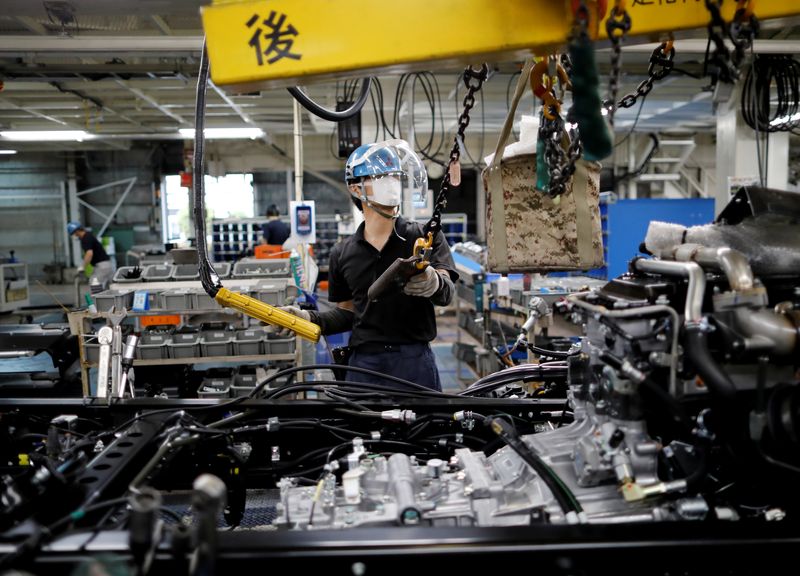TOKYO, Mar 1 (Reuters) - Japan's manufacturing activity growth slowed to a five-month low in February, as the Omicron variant of the coronavirus pandemic and raw material shortages hurt firms' output, even before Russia's invasion of Ukraine complicated the economic outlook.
The slower expansion in manufacturing highlights the heightened uncertainty facing the sector and the broader economy due to supply bottlenecks, higher energy prices and geopolitical tensions with Russia.
The final au Jibun Bank Japan Manufacturing Purchasing Managers' Index (PMI) in February slipped to 52.7 on a seasonally adjusted basis.
That was weaker than a 52.9 flash estimate and the previous month's final of 55.4, and marked the slowest expansion since a 51.5 reading in September.
The 50-mark separates contraction from expansion on a monthly basis.
"Significant supply chain disruption which dampened output and demand in the latest survey period was attributed to severe material shortages and delivery delays," said Usamah Bhatti, economist IHS Markit, which compiles the survey.
Manufacturers' input prices rose for the 21st straight month due to rising material prices, mainly because of higher cost of electronics and fuel, the survey showed.
"Input price pressures intensified further, with average cost burdens rising at the sharpest pace in thirteen-and-a-half years," said Bhatti.

"Firms doubled down on efforts to protect against future disruption and price pressures by raising safety stocks of raw materials and other inputs at the quickest pace in the history of the survey," he added.
Japan's economy is expected to grow at an annualised rate of just 0.4% in the current quarter as the pandemic and supply bottlenecks hamper a stronger economic recovery, a Reuters poll showed on Monday.